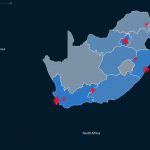Anthropic says its AI will not be used to spy on customers, even in government contracts. Here is what that means for AI governance, enterprise trust and defence partnerships.
Kaspersky launches tool to help detect stalkerware

Kaspersky has developed an open-source tool to help users fight the growing threat of stalkerware, with the launch of a tool named TinyCheck.
It aims to put the power of digital safety in the hands of everyday online users.
According to Kaspersky, there has been an 18% yearly increase of stalkerware usage on mobile devices in the META region (Middle East, Turkey, and Africa). In the company’s own words, “it’s obvious that stalkerware is not disappearing”.
So, what exactly is stalkerware? And how does TinyCheck help you from becoming a victim?
What is stalkerware?
Stalkerware is a blanket term that refers to a variety of harmful programs and apps that are designed to, you’ve guessed it, stalk you.
This can be via your smartphone or desktop device. Stalkerware includes keystroke loggers, location monitoring programs, invasive email and text readers, and remote access tech that can take control of your webcam and microphone.
It can even allow cybercriminals to take screenshots or screen recordings of your activity. Overall, it’s pretty nasty stuff that can lead to an invasion of your privacy.
This malware also poses a major threat to those in abusive relationships. Abusers can monitor activity to exert control over a person or prevent them from leaving the relationship.
It can even allow the abuser to access their target’s messages and location.
How does TinyCheck work?
TinyCheck is an open-source tool that relies on Rasberry Pi. It can detect stalkerware and spyware installed on smartphones and tablets, without making the perpetrator aware that such a check is being carried out.
It operates on a regular Wi-Fi connection and scans a mobile device’s outgoing traffic. This lets it identify interactions with known malicious sources, such as spyware-related servers.
TinyCheck was developed by Félix Aimé, a security researcher in Kaspersky’s Global Research and Analysis Team (GReAT). It aims to help non-profit organisations support survivors of domestic violence.
“The idea came to me in a meeting while discussing the issue of stalkerware with a French women’s rights non-profit organisation. The group wanted to help people who suspect stalkerware is running on their devices, without having to install additional applications or conducting forensic analysis,” explains Félix Aimé.
TinyCheck is currently available for free on GitHub.
For more information on stalkerware, visit the Coalition Against Stalkerware website. The website helps educate people about this type of malware and how to recognise it.
It can also provide resources for those looking for help — including a safety toolkit.
Feature image: Limon Das, Pexels.com
Read more: Local team wins $5000 from Microsoft to tackle GBV in South Africa


